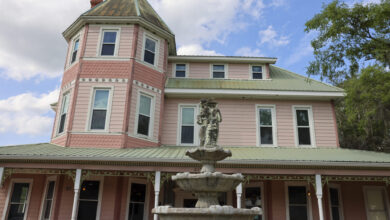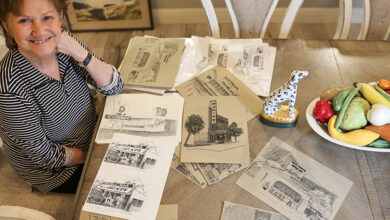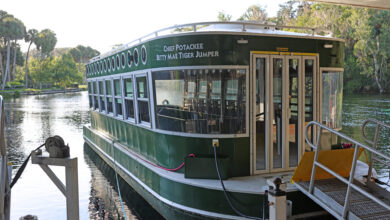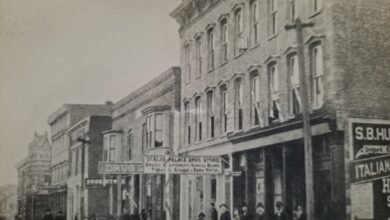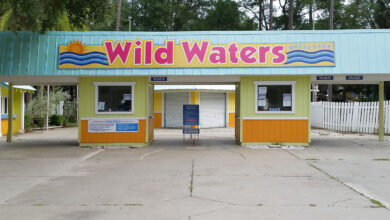On the corner of Magnolia and Broadway sits The Lodge Brick City Craft Pub and Eatery, but in the early 1880s this was the location of the first bank established in Marion County. It was here in 1882 that John Dunn organized the Bank of Ocala, which was located in a storefront on the downtown square.
If the name Dunn sounds familiar, it should. Prominent in the railroad, phosphate and cigar industries, Dunn was influential in founding the cities of Belleview and Dunnellon, the latter his namesake.
Before Dunn established the Bank of Ocala, banking was more of a secondary occupation for those involved, mainly storeowner E.G. Agnew and general merchandise operator H.P. Robinson and Brothers.
As is typical of much of the history of downtown Ocala, the great Thanksgiving Day fire of 1883 altered the banking landscape at that time. Whereas the Robinsons stayed out of banking, Dunn and Agnew went full bore as banking competitors following the fire. Dunn reorganized the Bank of Ocala by nationalizing it and later named it the Merchants National Bank, while Agnew organized the First National Bank.
At its inception in 1887, the Merchants National Bank had capital of $50,000 and deposits of $60,000. In four years, the bank’s capital had grown to $100,000 and deposits of $380,000. Agnew’s First National Bank started in 1886 with $50,000 in capital and listed deposits subject to check at $37,866.65. By 1891, aggregate deposits had increased to nearly $330,000.
After consecutive freezes destroyed the local citrus industry and many of Agnew’s holdings, the First National collapsed in 1895, leaving Merchants as the only bank in town.
Oddly enough, when Merchants started, Dunn hired a 19-year-old named Richard McConnell as cashier, a position of significant responsibility and power. McConnell proved himself in the industry and, following Dunn’s sudden death in 1895, the young McConnell took over as president of the bank.
With the economic collapse nationwide and in particular locally with the demise of citrus and phosphate, McConnell had his hands full, but also the confidence of his depositors and even the Florida Bankers Association. Agnew had gone to jail for his role in First National’s collapse, but McConnell seemed above board as he traveled to New York in an attempt to raise money and keep his bank from failing. To no avail, though, as Merchants eventually closed its doors for good in 1897.
Federal marshals concluded from evidence that fraud was involved in the bank’s closing and several businessmen had been warned in advance to withdraw their money while hundreds of other depositors were left to dry. When a U.S. deputy marshal arrived at McConnell’s home during dinner of June 1897 to serve a warrant for his arrest, McConnell retired upstairs and shot himself in the head. According to an article by David Cook in the Ocala Star-Banner, McConnell, only 30 at the time, left a note that read, “Goodbye, my darlings. God have mercy on me. There is nothing left for me to do.”
In subsequent years, financial institutions would make a comeback in Ocala, but the tumultuous beginnings will not soon be forgotten.


